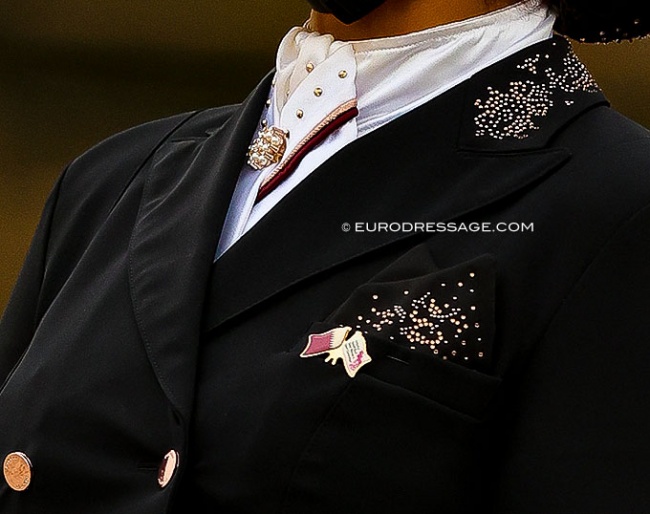
-- Text by Ana Escauriaza, edited by Eurodressage - Photos © Astrid Appels
Despite the boom and popularity of disciplines such as show jumping and endurance, the Middle East seemed to be a wasteland for dressage. However, for the past couple of seasons, something has been moving in the countries of the Arabian Peninsula and surrounding areas. Let's meet those who are making this change possible. Let's meet the centaurs of the desert.
Although Europe remains to be the source continent for dressage, little by little, international competition has been spreading around the globe. It is not for nothing that the championships or Olympic Games have more and more flags among their participants.
Nevertheless, the Middle East seemed oblivious to this change. Countries with a long tradition in the horse world, such as the United Arab Emirates or Qatar, which have embraced disciplines such as show jumping or endurance, seemed reluctant to take to the dressage ring. Fortunately, a growing number of riders are gradually opting for dressage. Likewise, the number of equestrian centers that decide to organize competitions in this discipline is increasing.
The Group 7 Committee: the FEI's invaluable support
At an organizational level, the countries of the Middle East are associated in Group 7 of the FEI. This Group brings together 18 countries from the Middle East and North Africa. At the time of writing this article (October 2023) the FEI has registered only 24 dressage riders in this area (compared to 1646 in jumping or 1532 in eventing) and 22 horses (for 1773 and 1959 of the two mentioned disciplines, respectively).
Saudi Arabia (with 7 riders) Qatar (5 riders) United Arab Emirates and Palestine (with 4 each) are the countries with the largest representation. Of the 18 countries mentioned, 11 of them do not have any FEI riders.
In August 2022, FEI regional Group 7 decides to create the "Group 7 Dressage Committee," with the Palestinian rider Diana Al Shaer as president. The idea of creating such committee was born from the FEI regional group itself, seeing the growth that the discipline in the region. The highest international equestrian body thought it would be a good idea to centralize efforts to develop dressage in the Middle East.
Currently, the committee has seven members from six different countries. Al Shaer is joined by Emirati Mohamed Al Serkal, Moroccan Yessin Rahmouni, Qatari Wejdan Majed am Al Malki, Saudi Arabian Ahmed Sharbatly, Palestine Shayne Allise, and Kuwaiti Fajer Al Sabah.
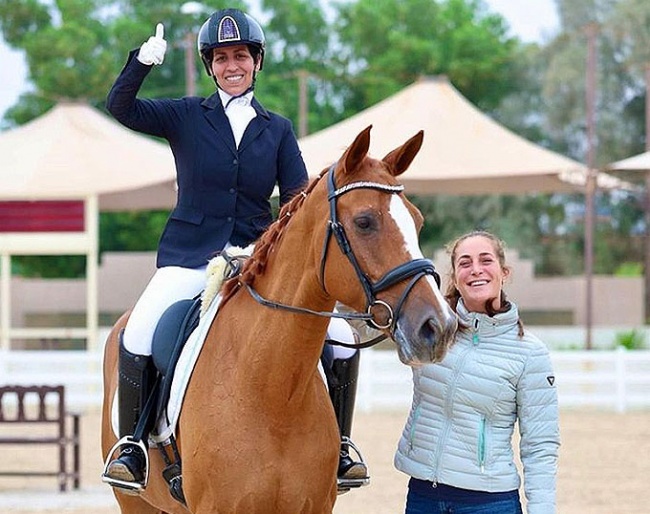
Another key objective of this working group is to promote dressage in the region through education. Proof of this is the judges' refresher clinic that in April 2023 was held in Abu Dhabi. More than 40 people participated in the event, demonstrating the growing interest in the discipline.
For the 2024 season, the Committee hopes to develop, within the FEI solidarity program, a kind of competition league with venues in the various countries. The league, following the example of the FEI World Challenge that already exists in the UAE, will include events from the most elementary levels up to St. Georges. So far, countries such as Qatar, UAE, Bahrain, Kuwait, Saudi Arabia, and Oman have shown their interest and are potential organizers.
United Arab Emirates (UAE): the focus of the region
Speaking about the Middle East as a homogeneous bloc would be untrue. The region has very disparate situations. Within Group 7 we find countries at war (such as Palestine, Israel and Lebanon) and other states with economic and social development on par with any European country (such as the UAE, Qatar and Kuwait). Within the second group, the privileged situation of the Emirates should be highlighted.
The Emirates have been hosting an FEI-sponsored challenge for years. This event gathers, during a weekend, the highest level riders and horses of the country and is a great incentive for professionals and amateurs. In addition, during the season (which runs from October to April or May) local riders can test their skills in a number of competitions. In the 2022-2023 season, 27 dressage competitions were held in Emirates. In the previous cycle, there were 21. Most of the competitions are held in the emirates of Abu Dhabi, Dubai and Sharjah. Natalie Lankester is the current champion of the highest level, Prix St. Georges.
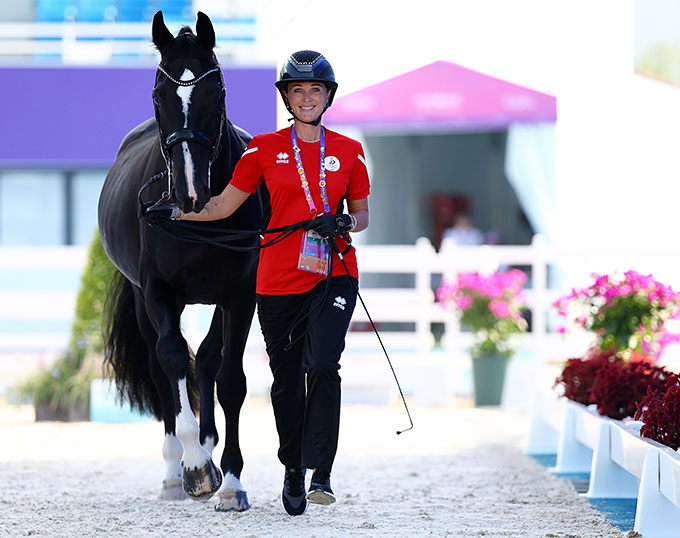
(Photo © Yong Teck Lim for the FEI)
Lankester is a good example of the dressage rider profile in the Emirates. Although the popularity of the sport is steadily growing, the discipline seems to appeal more to local ex-pats than to Arabs. A quick glance at any local competition will yield a list of names and surnames that are more European than Emirati. The big exception to this rule is local Mohammed bin Jassim Al Serkal, the only Emirati rider active at international level. Al Serkal was part of the historic first Emirati team at the 2023 Asian Games. He rode Dominique Filion's Hermes V (by Bretton Woods), whose ride he received from a sponsor.
Al Serkal plays a very active role in developing dressage in his native country. He is part of the local committee to promote dressage in the UAE and is often seen at competitions or clinics, supporting younger riders. Al Serkal is the living example of the difficulties and challenges faced by riders in the region. In 2016, he decided to travel frequently to Europe to train with professionals in order to develop his career as a rider. However, he has some major handicaps. First of all, the lack of sponsors. Local sponsors prefer to invest their money in more popular disciplines, such as show jumping or endurance. According to Al Serkal, it is difficult to convince a sponsor to invest money in a sport like dressage, where results can take years to come. However, the Emirati rider can consider himself lucky on this point because, after years of hard work, he secured the support and sponsorship of Al Shira'aa Stables, founded by Her Highness Sheikha Fatima Bint Hazza Bin Zayed Al Nahyan.
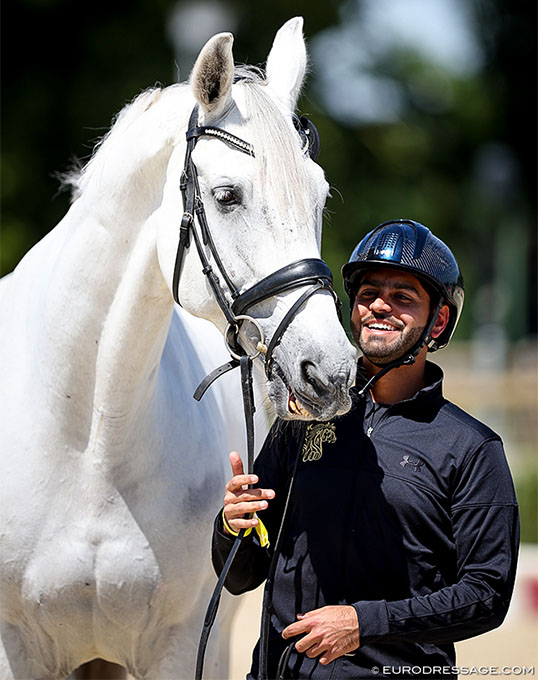
Al Serkal, along with Lankester and endurance riders Ali Khalfan Al Jahouri and Bianca Schultz, were part of a historic dressage team at the Asian Games. For the first time, the UAE had a quartet in this event. The last presence of the UAE flag at these Games dates back to 2010, when Farah Al Khojai (now out of competition) reached the final. Al Khojai herself is also the first Emirati rider to win a medal. She did so at the 2011 Pan-Arab Games.
Al Khojai may have been the first but not the only one. The 2028 Olympic Games are a dream chased by Al Serkal.
Qatar: from the glamour of Doha's CDI5* to the Longines Hathab Qatar Equestrian Tour
Also located on the Arabian Peninsula, Qatar is another of the great centers and hopes of dressage in the Middle East. Actually, they are the first and only Arab country with a CDI and one of the few that can boast having flown their flag at Grand Prix level.
Moreover, with a team gold and an individual gold and silver swept at the last Pan-Arab Games (2011), they were the only Arab country with team representation at an Asian Games (2006) until the current 2023 edition.
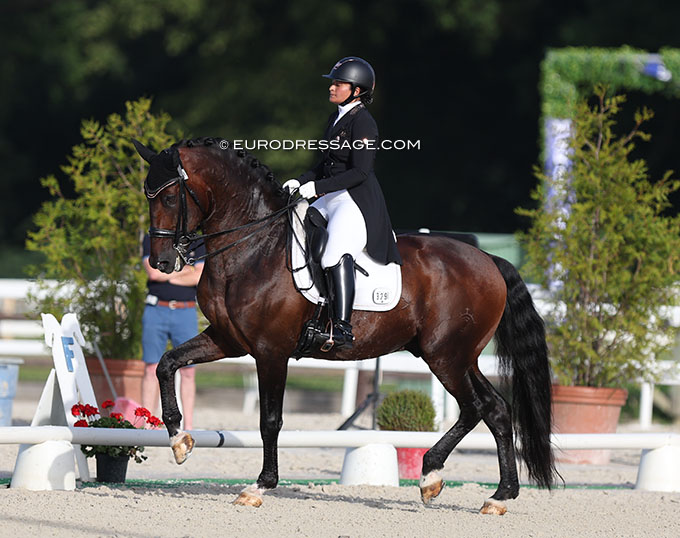
However, the Qatari flag seems assured in the international arena thanks to riders such as Maryam Al Boinin, Jassim Al Kuwari, Saoud Al Boinin, or Maryam Al Semaitt, all of them regulars in local competitions and, moreover, members of the Qatari team that competed in the 2023 Asian Games.
These four riders, in order of numbering, are also the top four finishers of the last edition of the Longines Hathab Qatar Equestrian Tour, the local Qatari league. The Hathab Equestrian Tour is primarily a show jumping league. Over the course of twelve venues, the various teams compete for the victory. But this competition also includes a parallel dressage league. With only six venues, two levels and no team events, the Hathab Equestrian Tour has become the best tool for promoting dressage in the Arab country. Currently, Azade Apa Trilet and Maryam Al Boinin are the champions of the advanced and elementary levels, respectively.
Palestine, the focus on hope in the midst of war
Although the conditions for developing dressage in Palestine are very bleak; curiously this Arab country has been and is one of the most represented in international dressage. Long-time fans will remember the German Christian Zimmerman (né Bruehe) who flew the Palestian flag at the 2016 Olympic Games in Rio de Janeiro on Aramis (by Scandic x Papillon) and at the 2018 World Equestrian Games on Roble AR (by Ravallo x Donnerschwee).
Currently, the representation of the country comes from the hand of three female riders, all naturalised Palestinian. On the one hand, there is the Russian Aleksandra Maksakova, who has recently embraced the Palestinian flag to circumvent the FEI sanctions on Russia. On the other, Shayne Allise Steyteyieh, previously competing under the American and Jordanian flag and yet to make her international show debut for Palestine. Her last CDI start was for the USA as a young rider in 2012. Especially, the aforementioned Diana al Shaer stands out. Born to a Palestinian father and Russian mother, Al Shaer decided to compete under the Palestinian flag after visiting the occupied territories in 2018 and being horrified by the injustices suffered on a daily basis.
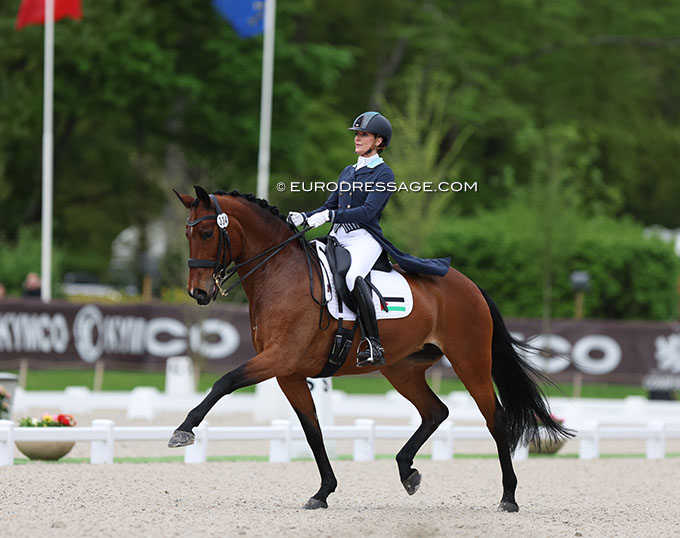
Her time at the World Championships also attracted the attention of the Arabian media. Powerful companies such as Al Jazeera took an interest in the adventure of Al Shaer, promoting dressage to the general public. The Paris Olympics are the next goal for this pairing. And maybe we can see them again at the 2026 World Equestrian Games in Aachen.
Al Shaer combines competition with coaching. For the past two years, the Palestinian rider has been traveling frequently to the United Arab Emirates, where she has several students. Among them, the local Shaama Al Meiri, three times junior champion of her country, stands out. She is very positive about the boom in dressage in the UAE. Specifically, Al Shaer believes that the Emirates is experiencing the greatest growth in the area. Not only are new riders coming to dressage in the Arab country, but riders from other disciplines, such as show jumping, are switching sports and taking to the ring.
Returning to Palestine, Al Shaer tells us that dressage is having a timid growth thanks to some riders and jumping stables that are experimenting with the discipline. However, the war in the country makes it almost impossible to expect changes in the short term. Al Shaer considers that, until the Palestinian reality is resolved, it is impossible to speak of the development of dressage in this country.
Bahrain, Kuwait, Jordan, Oman, Iraq, Saudi Arabia and Lebanon, the small green shoots.
The uneven development of the discipline in the Middle East is evident in the other countries of the region. In Bahrain, for example, there is only one rider competing outside its borders. Twenty-year-old Aneesa Al Mahmood rides in national competitions in the Netherlands. Locally, Bahrain has about 4-5 competitions a year in which about 15 to 20 riders compete. This 2023, the country held its second dressage championships. Megan Black, guarded on the podium by Mohamed Al Meabad and Oliver Walter, was proclaimed champion.
At the local level, the British Oliver Walter leads, at his TPRC center, the national competitions. With 5-7 shows per season, Walter's private initiative complements the government-scheduled competitions. Abdulrehda Alafoo is the only Bahraini national rider competing abroad at this moment. He is committing between Spain and Bahrain and, last October, he did his first Spanish show when he competed in the regional Murcia Championship riding the 5-year old Falkor AC (nu Furst Jazz x Rousseau).
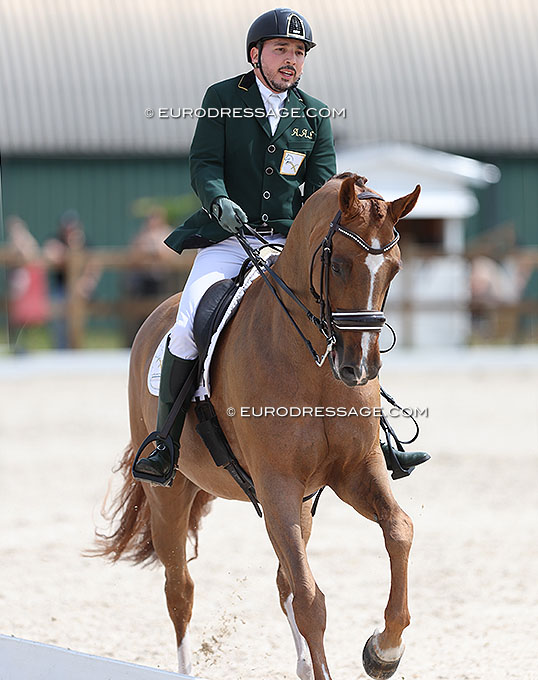
In Jordan, Karla Deir is a name of her own. Stabled in the UK and riding Silver Dream, she made history by becoming the first Jordanian to race a CDI (CDI Crozet 2023). Deir, a regular at national competitions on the islands, wasn’t able to attend the Asian Games due to lack of funding. Unlike the USA or Qatar, the Jordanian federation does not have a budget for the dressage discipline and each championship or competition is financed by Deir's own means. The lack of institutional support does not seem to dampen Deir's will. Currently, the Jordanian rider is looking for a second horse to be able to compete more assiduously at the St. George / Inter I level. On the horizon, moreover, Deir has the 2028 Olympic Games as a major goal. For the time being, in 2024 he hopes to be able to compete in 1* and 2* CDI in Europe and gain experience.
Kuwait held its first national competition in 2022. The development of dressage in this small country is concentrated in the hands of Fajer Al Sabah, a great fan of the discipline and alma mater of the company Equiciety.
Finally, the discipline's trajectory in Lebanon, Iraq and Oman has been much shorter. Iraq and Lebanon's only international representation came at the 2011 Pan-Arab Games, where their teams won silver and bronze medals, respectively. Oman lacks local competitions but is currently developing clinics that aim to boost local interest in dressage.
A Quick Summary
But why are there so few dressage riders in a region with a long tradition in the horse world, where other disciplines such as show jumping and endurance have also become so popular? Al Shaer and Al Serkal agree on the reasons. For both Arabian riders, the problem is the lack of training. Dressage is not part of the local culture and riders have to learn the rules of the sport from scratch. In addition, they must not only be trained in how to execute the exercises correctly, but they must also learn patience and understand how judges judge their movements.
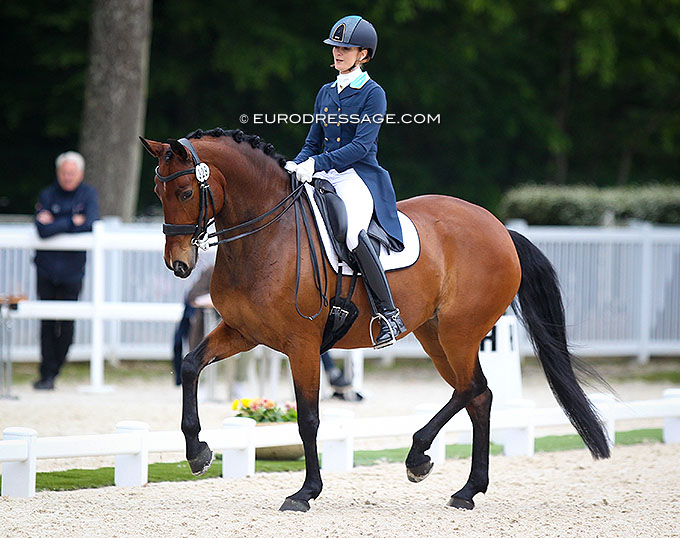
Moreover, as Al Serkal reminds us, some countries such as the USA, Qatar and Saudi Arabia have a great advantage. Unlike in Europe, governments and public administrations support and finance these riders. Curiously, the biggest handicap for these professionals lies in obtaining private funding despite all the wealth and affluence at hand in the region.
International initiatives such as the FEI and Longines Hathab challenge or the work of the Group 7 Dressage Committee are aligned with the work developed locally by riders and equestrian centers in these countries to create a perfect breeding ground. As Al Serkal recalls, world powers in show jumping and eventing, such as the UAE, Qatar and Saudi Arabia, began to develop these disciplines in the 1990s. And today their teams are regulars in the most prestigious championships and competitions.
Therefore, Al Serkal, Al Shaer, Deir or Al Malki are eager to share boxes and compete with other riders from their countries. And they will no longer be the centaurs galloping alone in the deserts.
Related Links
Dressage in Kuwait, From Fata Morgana to Reality
Middle East and North African Riders Unite to Develop Dressage in FEI Regional Group 7
Maknami Directs National Judges Maintenance Course in Abu Dhabi
Al Shira'aa: Unfolding the Map
Mohamed Al Serkal Withdraws Dynamite From 2023 Asian Games Contention
Dominique Filion's Dynamite S Leased as Asian Games’ Hopeful for United Arabic Emirates
Tracy Wyngard-Gill: "Equine 74 Gastric is a Long-Term Solution for Gut Health"
Saudi Arabia's First Female Olympian Addresses IOC Women and Sport Conference
Jilaoui Out for Moroccan Olympic Individual Spot, Ticket Goes to Rahmouni
Christian Zimmermann's Road to Rio Leads Through Wellington